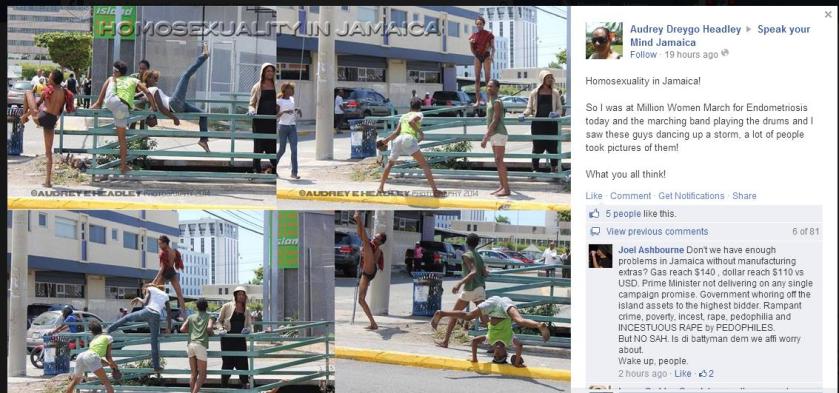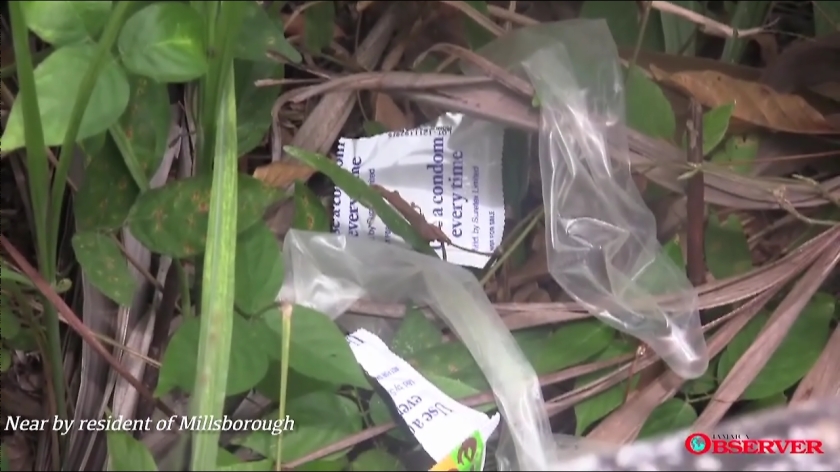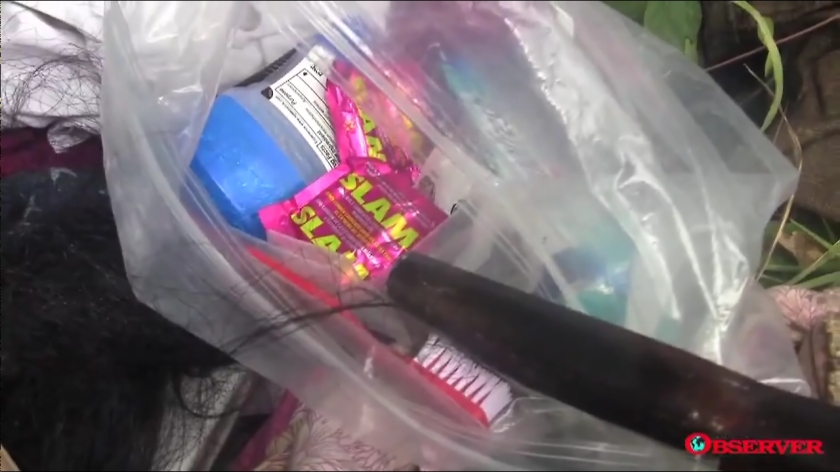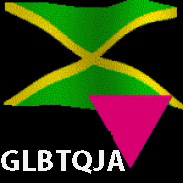More and more I seem to be coming across young gay, transgender and bisexual youth who feel weary it seems from the over supply of pinch leave an inch condoms, pamphlets and paraphernalia on safer sex and AIDS and other related materials as multiple agencies jostle to reach what has basically become the same cohort on the face of it of males for the most part in the quest for HIV prevention but where are the more meaningful outreach and interventions for holistic development and nurture?
Some in the know may say that funding is hardly available for those kinds of developmental work (which maybe true in a sense but still sounds more like an apology for slackness and maintaining the old status quo) and indeed the more cynical would go as far as to say it is not the agencies involved best interest to do or offer such meaningful interventions as that will diminish their cohort of potential service users and thus nothing to report hence no need to prepare programs only to seek future funds, after all agencies exist to supposedly help but how many persons are actually being helped or impressive success stories to prove same while old narratives are still being used to suggest that gay/bi men do not have access to safer sex implements which is a lie.

also see: Homeless MSM/Trans youth draw attention in New Kingston



The complaints and reports still come almost on a monthly basis these days of some homo-negative outcome somewhere on the island and the phone calls of requests for money or some form of assistance are growing in frequency too as economic issues abound. There agencies that run and managed by powerful gay persons who have the clout to solves this long standing matter of displacements seeing we have both hard and anecdotal evidence that tells us in no uncertain terms that those are visible consequences of stigma, homophobia and homo-negativity.
Take for example this flashback: UNIMPRESSED WITH THE CVM TV SHOW ON MSM HOMELESSNESS
The September 6th 2012 appearance of representatives from The National Council of Drug Abuse and AIDSFREEWORLD’s Maurice Tomlinson to address the recent public eviction of homeless MSM from Cargill Avenue was at best damage control to another embarrassment regarding the poor response from the relevant LGBT agencies. JFLAG WAS NOT PRESENT AT THIS CVM TV LIVE @ SEVEN Program The attempt to use old programmatic language by Maurice Tomlinson to suggest MSM have no access to condoms while the CVM newscast itself showed the movers holding the condoms in their hands they found on the site and saying the men were practising safer sex should be instructive to ALL in view.
Young gay men as indicated above are also becoming weary of the way they are viewed despite the aforementioned concerns in a group session over the past week some young men some of whom were teetering on homelessness were invited to a meeting called by a community influential who is concerned about the numbers of them on the streets mostly from Kingston, Portmore and Spanish Town (excluding the five who are helped by a church/LGBTQ group in an ongoing weed whacking project) where they aired some issues they had it was instructive that some of them had a barrage of condoms on their person and laughed at the exposure of them as they accidentally fell from a bag of one of the attendees. He joked “All dem do a full mi up wid boots” (all they do is full me up with condoms) “boots” is the colloquial expression for condoms but something happened after the initial laughter died down as it seems the realization that they were having trouble finding permanent shelter or other crisis issues ongoing were real and that “boots” cannot be a solution whenever they are met by the various outreach teams as part of the HIV prevention strategy. The homeless men for example who have been making the news in New Kingston have been receiving food items once a week but is that enough? They too have had loads of condoms thrown at them as we have seen repeatedly on the television newscasts and other videos covering them. What about the deeper issues and personal concerns they have. The men in the meeting of which I was present were asked to fill out a random list of what they require and their lists read as a call for items and things you and I may have probably not considered important as we enjoy those amenities or interactions on a daily basis and indeed take them for granted. The simple lament by the boots carrying man screams far more than just the obvious since they fell in such a great numbers, one could easily count thirty or so. The conversation continued after the list creation exercise and what came out was a stunner to me despite my knowledge of how some persons feel about the whole scenario as older displaced men in time have echoed a similar sentiment with some level of frustration.
The ideal scenario would be a meeting place for group session and support meetings
Steady supply of food cooked or uncooked
Shelter and some sort of transitional living program towards independence
Educational or skills building opportunities
Guidance on developing and executing life plans through self efficacious activity not just limited to HIV prevention
Exploring the arts and possible skills linked to cross dressing aesthetics and affinity to cosmetics (drag culture, forced feminization and female cisgenderistic presentations for male to female transgender persons in the group)
But by the sound of the lament and the subsequent tete a tete the men are not satisfied; theirs is a perception that more privileged homosexuals control tons of money in funding and that the money is being spent on non essential things such as court cases, fat cat salaries and perks while persons who are on the lower socio totem pole are just relegated to being “victims” or service users and nothing more, doomed to get HIV (if they do not have it already) or waiting to die. Such were the tones in the ensuing discourse. Recent history has unfortunately given some credence to these perceptions as feelings of abandonment of the aforementioned homeless men in New Kingston still linger from the repeated news headlines, shenanigans and police interventions of that population and believe me word travels whenever there is any such occurrences. The men in the long and short of it want to be seen as human beings that deserve respect as one older person claims that there is favouritism as well in how interventions are carried out by some agencies and their representatives. Why are some powerful advocates and personalities in HIV/MSM prevention in particular refusing to go this route of real life changing intervention rollouts is still not clear to some, the departure of a Board Chair of Jamaica AIDS Support for Life also has not gone down so comfortably with myself and others as her stance on homelessness was supportive for the most part despite the run-ins with the men and the stoning incidents on their former offices at Upper Musgrave Avenue yet by the soundings out there one particular former chair but who still sits on the bench has been haggling against any such proactive moves to address homelessness which does not surprise me as he was the chair when the Safe House Pilot was closed with no psycho-social interventions allowed to stop the “bad behaviour” that was used a justification to take such final actions on a needed project.
My part in the whole affair however was to offer some encouragement to the lads in the scheme of things especially owing to the fact that one of the men’s friends was hospitalised recently for a brief illness but how can words heal when the real life toughness abounds and affect their present reality? Then we turn around and wonder why the anti social behaviours are happening when it is obviously clear to those looking that such are only means to an end to forget if only for a fleeting moment the worries of the hour. It is also interesting that as a group the men are indeed “rowdy” (word used by voices in the gay lobby to describe them also “maladjusted miscreants” showing the elitist side to this) but as individuals is it amazing what comes flying out of them in a one on one session discussing real life matters yet they are for all intents and purposes made to become martyrs in a sense for a cause that they might not have subscribed to in ordinary circumstances when asked to do so. Leaving them out in the cold for so long seems unethical on the face of it then allowing the numbers to reach levels where they can be used and paraded as “concerned” advocates make themselves look good in coming to their rescue. We are not fooled by the deception but let us see how long the using will take place and if really any proper productive end will come of the recently announced shelter idea, yet another one.
Some indigenous groups such as the aforementioned St Catherine weed whacking project group, Colour Pink (aligned to the aforementioned JASL) and Aphrodite’s PRIDE Jamaica of which I am performing Outreach and Facilitation duties for their Enterprise Training Project for more stable formerly displaced MSM/Trans and Lesbian individuals are addressing in their own way psycho-social issues and other concerns such as jobs and education development but we know where some of the blame of all this lies at the feet of these same agencies who only do enough to look as if they are addressing some issues but not with a view to adequately address what they take on only for the interventions to last out for experts have jobs it seems. Others seem more interested in media whoring possibly to satisfy a narcissistic complex at the expense of the least amongst us and then we wonder why we are here with an exploding displaced and homeless grouping and advocacy in limbo in the face of steady HIV/AIDS infection rates in the MSM cohort.
The APJ training for example we stay far away as a possible from an over preponderance of HIV messaging and instead go for positive reinforcement in terms of identity, coming out and so on.
Some things to think about but who is brave enough to say it openly when their snouts are in the troughs?
Integrity in advocacy anyone?
Peace and tolerance
H












You must be logged in to post a comment.